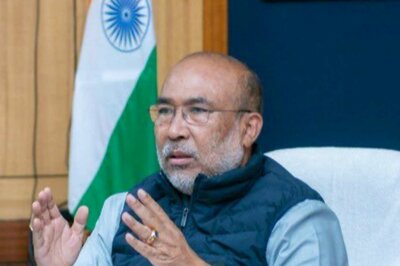
views
Budget 2024: As India awaits the Union Budget 2024 on February 1st, expectations for the insurance sector are buzzing! It’s important to keep in mind that this will be an interim budget due to upcoming elections so major policy changes might be limited.
Also Read: Income Tax Rebate Unlikely To Rise In Budget 2024: Report
An interim budget is a temporary financial plan presented by the government when general elections are looming or a new government is set to take office. It serves as a provisional arrangement to meet the expenditure needs of the government for a short period until a new government can formulate and present a full-fledged budget.
However, here are some key areas where the insurance sector hopes to see some focus:
GST Rates On Insurance Premium
Asha Murali, partner, actuarial services, BDO India, said that a relook at the GST rates on insurance premiums is a reasonable expectation from the budget as social security measures are still evolving in the country.
“Insurance for all is the need of the hour to protect oneself and dependents from hardships arising from unexpected circumstances. While tax incentives act as positive nudges to make the right decisions, over the past several years, the orientation has been towards simplifying the tax structure and reducing incentives,” Murali added.
“While that stance may not change, the level of GST rates is worth revisiting as it will go a long way in improving insurance affordability,” Murali urged.
80D Deduction Limit
Archit Gupta, founder and CEO, ClearTax has sought the 80D deduction limit to be raised.
Gupta said that the deduction limit under Section 80D for medical insurance premiums should be increased from Rs 25,000 to Rs 50,000 for individuals and Rs 50,000 to Rs 75,000 for senior citizens, reflecting rising healthcare costs.
Additionally, extending Section 80D benefits to the new tax regime would promote equitable access to healthcare.
Healthcare Needs Of Low To Middle-Income Groups
Yogesh Agarwal, founder & CEO, Onsurity, said, “It is recommended that the government focus on expanding insurance accessibility by offering GST credit to small and medium-sized businesses that prioritise employee insurance and wellness costs. This would not only enable SMEs to provide comprehensive healthcare coverage to their workforce, but also reduce the burden on government resources, particularly in supporting the healthcare needs of the low to middle-income segment of the population.”
OPD Benefits
Agarwal added that the creation of a health savings account and offering tax benefits on OPD healthcare expenses, up to a reasonable cap, can be a significant step towards preventive healthcare. This approach would promote individual responsibility towards healthcare and address the financial concerns of citizens.
Addressing Out-of-pocket Expenses
Considering the rapid rise in medical inflation, the government must assess the impact of out-of-pocket expenses on low-income households. A thorough review of existing policies and potential interventions can help ensure the affordability of healthcare services for all segments of the population, Agarwal urged.
Recap: Budget 2023
Income from traditional insurance policies where the premium is over Rs 5 lakh are no longer exempt from taxes, Finance Minister Nirmala Sitharaman announced in her Budget speech last year.
In the days preceding the unveiling of the 2023 budget, there was considerable anticipation regarding potential changes to Section 80C of the Income Tax Act. Many speculated that revisions were imminent, with expectations of an expansion in the existing deductions for health insurance premiums.



















Comments
0 comment